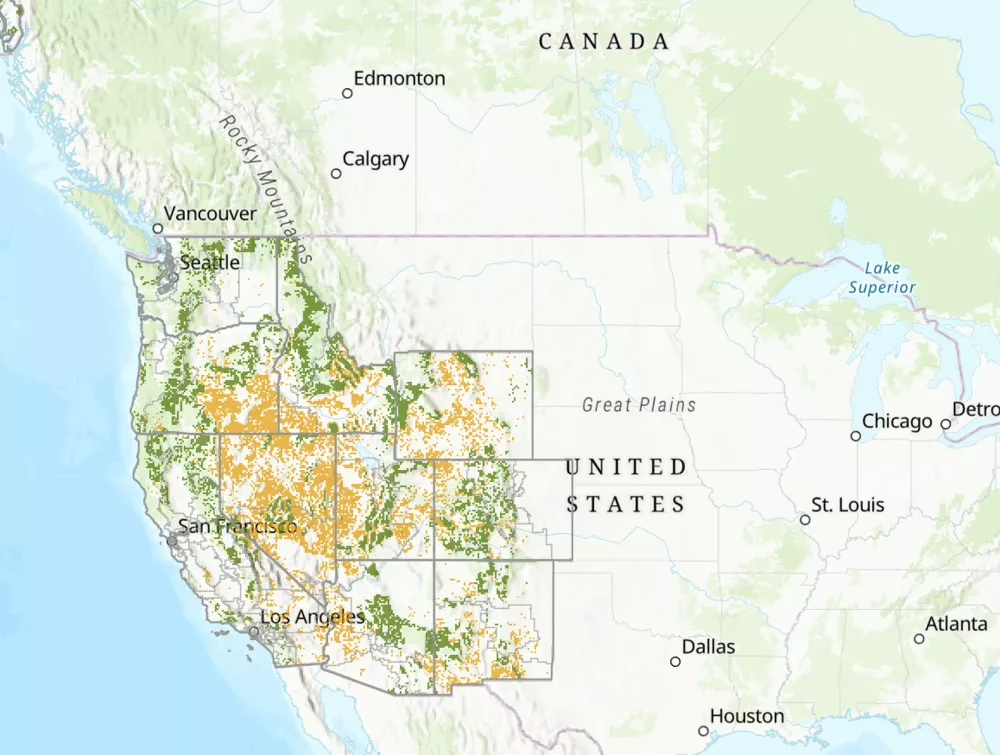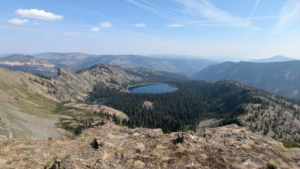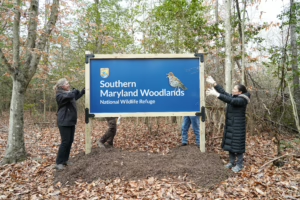Bipartisan opposition mounts as proposal could affect over 250 million acres across 11 states
June 18, 2025 – A contentious proposal to sell off millions of acres of federal public land in Western states has resurfaced in the Senate’s version of President Trump’s “One Big Beautiful Bill Act,” sparking fierce opposition from an unusual coalition of conservationists, outdoor recreation groups, and both progressive Democrats and MAGA supporters.
Senator Mike Lee of Utah has championed the controversial amendment, which would require the Bureau of Land Management and U.S. Forest Service to dispose of between 2.2 and 3.3 million acres over the next five years. Under the latest version of the proposal, nearly 18.7 million acres in Utah to be eligible for sale, with over 250 million acres across 11 Western states potentially affected.
To see how your favorite area could be affected, check out this interactive map created by the Wilderness Society.
The legislation marks a significant expansion from earlier versions, as the updated version substantially increases the amount of land that could be sold off by making public land used for grazing eligible. The bill would force federal agencies to solicit nominations for land privatization and publish lists of available tracts every 60 days.
Unprecedented Opposition Coalition
The proposal has created a rare political alliance, with strong pushback from conservationists, Democrats, and MAGA supporters. Outdoor recreation groups, hunting and fishing organizations, and environmental advocates have united in opposition to what they view as a dangerous precedent.
The Sportsmen’s Alliance, representing hunters and anglers, has expressed serious concerns about the proposal’s impact on recreational access. Similarly, the Outdoor Alliance and other recreation groups warn that the sales could affect popular skiing areas, hiking trails, and camping destinations across the West.
Supporters of the legislation argue it addresses Western housing shortages by expediting public land sales for affordable housing development. Under Lee’s framework, purchasers would need to explain how their proposed land use addresses local housing needs.
However, critics question whether selling public lands represents an effective solution to housing affordability. The proposal has been characterized by opponents as primarily serving to generate revenue for tax cuts rather than genuinely addressing housing concerns.
The controversy extends beyond recreational access to broader questions about Western land management and economic development. Nearly two-thirds of Utah’s land is managed by the federal government, highlighting the significant federal presence in Western states that has long been a source of tension. Environmental groups warn that once sold, these lands would be permanently removed from public ownership, with “Once the land is sold, we will never get it back” becoming a rallying cry for opponents.
Political Hurdles
The proposal faces significant political obstacles. House Republicans had initially removed similar language from their version of the budget bill following bipartisan complaints, though they later approved a more limited version affecting only two Western states.
Interior Secretary Ryan Zinke has introduced competing legislation that would require Congressional approval for any public land sales exceeding 300 acres, signaling potential administration resistance to large-scale disposals.
What’s Next?
As the Senate continues deliberating the “One Big Beautiful Bill Act,” the public lands provision remains one of the most contentious elements. The unusual bipartisan opposition suggests the proposal may face significant challenges, even as supporters argue it represents necessary reform of federal land management in the West.
The debate reflects deeper tensions about federal versus local control, economic development versus conservation, and public access versus private ownership that have defined Western land politics for decades. With millions of acres and countless recreational opportunities potentially at stake, the outcome could reshape the landscape of public land access across the American West for generations to come.
“In Utah and the West, public lands are the envy of the country,” Travis Hammill, the D.C. director for the environmental nonprofit Southern Utah Wilderness Alliance told the Salt Lake Tribune. “But Senator Lee is willing to sacrifice the places where people recreate, where they hunt and fish, and where they make a living — to pay for tax cuts for the ultra-wealthy.”





